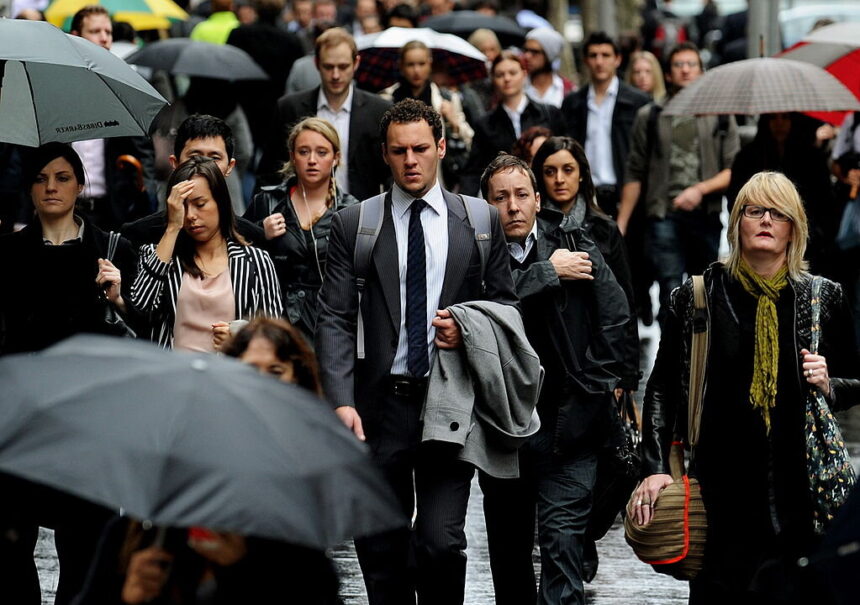Commentary
Are there too many human beings on Planet Earth? This is not an empirical question, but a normative one. It depends on one’s perceptions, assumptions, beliefs, and understanding (or lack thereof).
The world’s human population first reached one billion around the year 1800. Two highly regarded English writers on economic issues despaired that the population had reached its limits. David Ricardo posited the “iron law of wages”: any upward trend in population would, in accord with the inexorable law of supply and demand, keep holding wages down, dooming workers to a grim subsistence level of income. His contemporary, the parson Thomas Robert Malthus, also believed that workers were doomed to abject poverty due to an inescapable mathematical reality—that while the human population tended to increase geometrically, the production needed to sustain them could only increase arithmetically.
Ricardo and Malthus turned out to be spectacularly wrong. Due to unforeseen advances in science, technology, and economic production (everything from better sanitation and medical advances to improved tools, the harnessing of affordable, reliable energy, and the emergence of mass markets) the world’s population increased to 1.5 billion by 1900. Workers, while far poorer than we are today, were achieving modest improvements in their standards of living every generation.
The human population continued to swell—some called it a “population explosion”—in the 20th century. Not only were there more people, but standards of living for workers continued to rise in countries where the various modern breakthroughs had taken hold. While the new affluence was considered a blessing, if not a miracle, by many, in the 1960s there rose a backlash against the huge strides of economic progress that had transformed life on Earth. The modern environmentalist/green movement rebelled against what was happening.
As epitomized by Paul Ehrlich’s 1968 blockbuster book, “The Population Bomb,” a new green orthodoxy emerged. It warned that the burgeoning population had both reached its own limits and consequently faced mass starvation within a decade or two, and that all the pollution generated by mass economic production would so damage Earth’s ecology that parts of the planet would become uninhabitable wastelands.
Activist groups like Zero Population Growth told us college kids that having babies was environmentally irresponsible. Some of the more extreme “environmentalists” began to characterize human beings as” a virus,” a “disease,” “vermin,” a “cancer.” They made statements like “The extinction of the human species may not only be inevitable but a good thing” and “Human beings, as a species, have no more value than slugs.”
However, just as Ricardo and Malthus were wrong in the 19th century, so Ehrlich and the other neo-Malthusians (named after their forerunner, the good Parson Malthus) were wrong in the 20th. Human beings turned out not to be a plague on the planet, but its “ultimate resource,” as the late economist Julian Simon put it. The human population (and consequently, the human talent pool) continued to grow; affluence continued to reach new heights and to include an ever-increasing number of people; and—three cheers for human rationality!—human beings (at least, in democratic countries) invested part of their affluence in policies that both reduced and remediated pollution so that those societies are far less polluted than they were 50 years ago.
Some countries have lagged behind in economic development. Socialist regimes (Cuba and Venezuela being two nearby examples) have tragically made their populations poorer by imposing economic de-development on them. Overall, though, the trend in recent decades has been positive. In the mid-1970s, there were approximately 3.5 billion people on Earth. Two billion of them were poor and hungry. Forty years later, there were 7.3 billion people and 767 million in severe poverty. Thus, in less than two full generations, the proportion of severely poor humans plummeted from roughly five in nine to one in nine. Nothing remotely similar to this massive economic progress has ever happened before.
So, where do we go from here?
I can remember telling incredulous friends who were convinced that the human population explosion would ruin life on Earth that capitalism was the cure for what they perceived as overpopulation. Free, rational adults would voluntarily choose to have fewer children. They weren’t about to procreate their way from affluence to barely scraping by.
Sure enough, the developed countries of the world find themselves on the brink of an era of shrinking populations. Birth rates are far below replacement levels in country after country. Future projections now deal with the prospect of a population implosion rather than an explosion. Will that be more beneficial or harmful? According to some demographers, countries like China, Russia, South Korea, and most of the countries in Europe are heading for—if not societal and political collapse—a drastic retrenchment.
One casualty of shrinking birth rates in advanced democracies like those in Japan, western Europe, and even the United States (although our demographic situation isn’t as stark due to our ability to attract immigrants—hopefully, properly screened and vetted) is likely to be the modern welfare state. A population that is top-heavy with seniors may find that there are neither enough working-age taxpayers to fully fund senior care nor perhaps even enough younger people to care for the aged.
Perhaps the elderly individuals will eventually realize that it would have been beneficial for them to have more children.
The question of whether there are too many or not enough human beings is a thought-provoking one, and is likely to be a topic of increasing discussion in the future.
Please note that the opinions expressed in this article are those of the author and may not necessarily align with the views of The Epoch Times.
Source link





